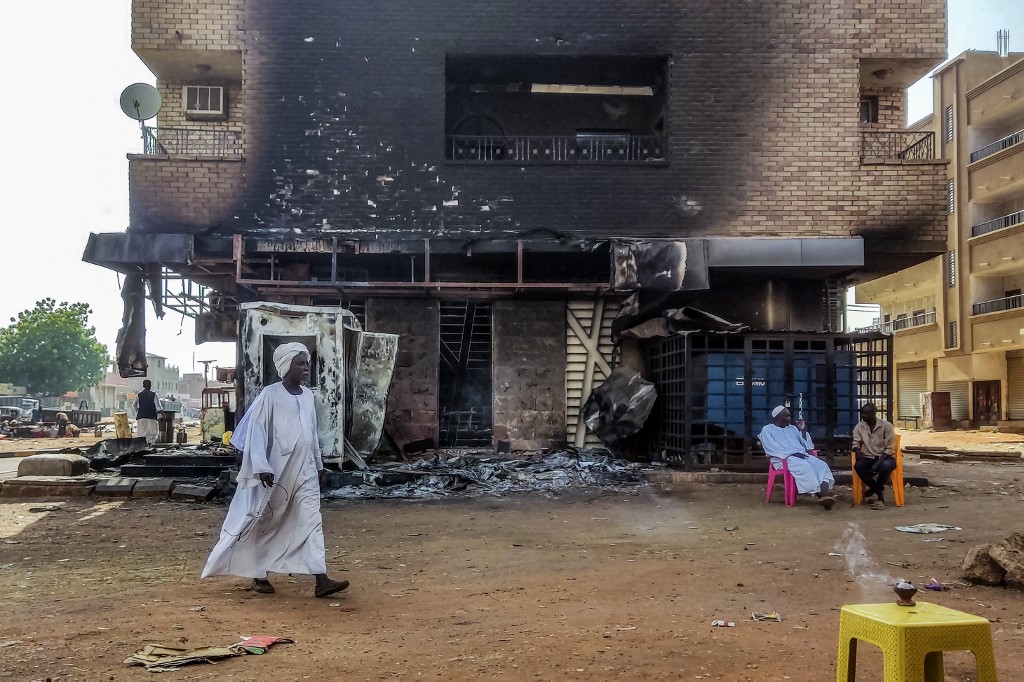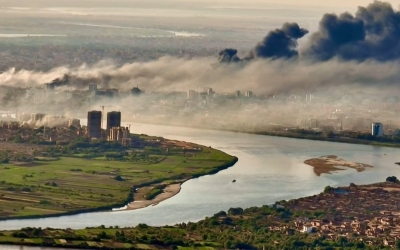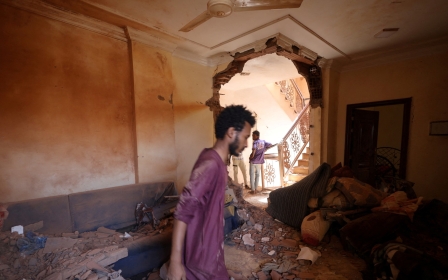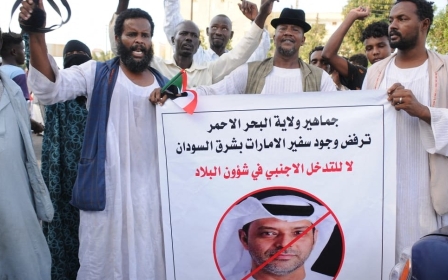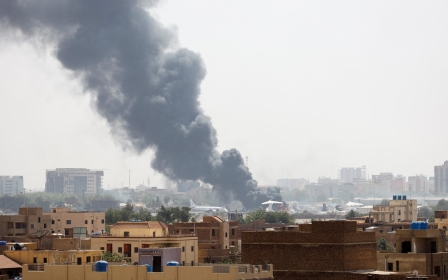Sudan’s conflict is being fuelled by a digital propaganda war
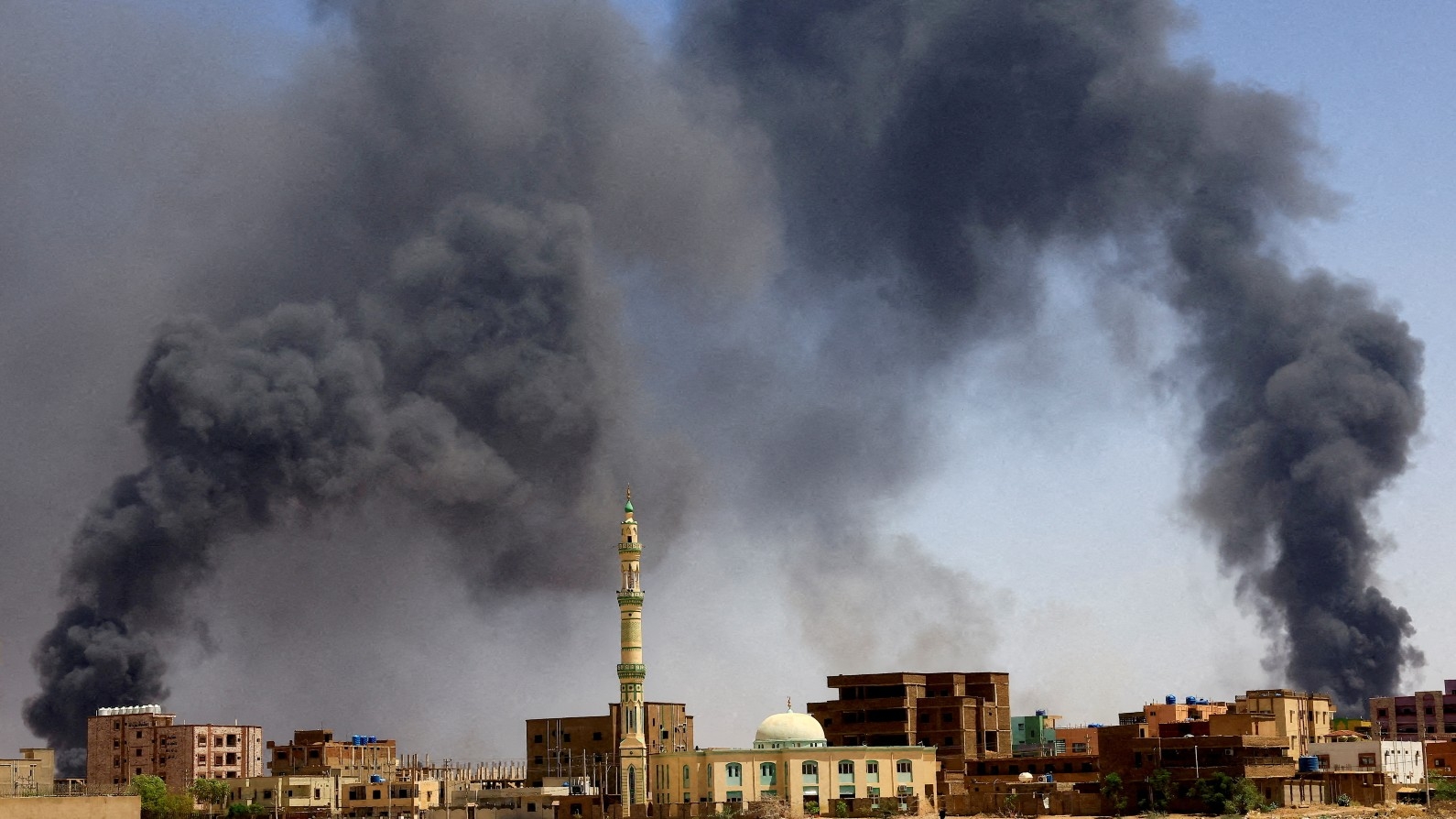
The outbreak of fighting in Sudan in mid-April between two rival military factions was a disaster for a country seeking a path out of decades of dictatorship.
A protracted conflict between the Sudanese Armed Forces (SAF), led by General Abdel Fattah al-Burhan, and the paramilitary Rapid Support Forces (RSF), led by General Mohamed Hamdan “Hemeti” Dagalo, now risks further destabilising the entire region.
But at the heart of Sudan’s latest civil war is a more subtle and nuanced offensive - as two warlords vie for control of a state being torn apart, a propaganda battle is raging online.
In an effort to win hearts and minds, the violence being perpetrated on the ground has thus been accompanied by a deluge of disinformation and fake news flooding Sudan’s digital public sphere.
Both warring sides have increased the volume of photos, videos, interviews and statements being circulated by their spokespeople and social media accounts, in what is obviously an attempt to whitewash their role in derailing Sudan’s transition to democracy.
New MEE newsletter: Jerusalem Dispatch
Sign up to get the latest insights and analysis on Israel-Palestine, alongside Turkey Unpacked and other MEE newsletters
Before their bitter power struggle exploded in bloodshed, the two aspiring strongmen were partners in an uneasy alliance. Yet this partnership ceased when talks of integrating Hemeti’s paramilitary forces into the national army began.
This set Burhan and Hemeti’s competing interests on a collision course that ignited civil war. Allies having now turned to foes, their use of online influence campaigns is helping fuel a ruinous conflict in a resource-rich and strategically located nation of some 45 million people.
Charm offensive
In 2019, almost immediately after former president Omar al-Bashir was ousted, Hemeti paid $6m to Dickens & Madson (Canada) Inc, a Montreal-based lobbying firm, to launch a charm offensive on behalf of Sudan’s transitional government, clearly hoping to bolster the credibility of Sudan’s new military leaders as legitimate and capable governors.
Meanwhile, Burhan, as leader of Sudan’s army and an ally of Bashir, has long benefitted from the pro-junta stance of the country’s state-dominated media ecosystem. This includes co-opting Sudan’s major private telecommunications companies and the communications regulator to continue weaponising state-sanctioned internet blackouts.
Prior to the outbreak of clashes, both Burhan and Hemeti had regularly travelled to meet - and be photographed shaking hands with - world leaders and high-ranking officials. Their diplomatic visits to Sudan’s neighbouring countries - Gulf countries including Qatar, Saudi Arabia and the United Arab Emirates as well as to the United Kingdom and the United States - further legitimised Burhan and Hemeti as head and deputy head of state respectively.
At present, both Burhan and Hemeti try to separately appeal to domestic and international actors for their support. Their zero-sum positioning will further mean that a major determinant of the propaganda war will depend on whether there Burhan and Hemeti are perceived as legitimate political actors and whether domestic, regional or international support coalesces around one of the two generals.
For the past month on Twitter, a cacophony of daily statements and footage from Hemeti and the RSF have attempted to rebrand the paramilitary outfit as a pro-democracy group committed to the principles of peace, freedom and justice.
The sudden posting of content in English - whereas the RSF’s primary language of communication is Arabic - further indicates the group’s strategy of trying to appeal to western entities in the international community.
The RSF paramilitaries have also announced the creation of a so-called “hotline” on WhatsApp to connect residents in the territory it holds with humanitarian aid, and to help with evacuations. A specialised task force similar to a neighbourhood police watch has been created as well, with a stated mandate of protecting civilians from crime.
Looting, extortion, sexual assault
These actions ring hollow amid credible media reports quoting citizens in Khartoum with accounts of RSF forces occupying and terrorising their neighbourhoods with mass looting, theft, extortion and sexual assault.
Trying to push back against the optics of having lost command and control of its own troops, the RSF’s leadership on 13 May issued a lengthy statement saying “our commitment to the rule of law is unwavering”, while vowing to hold its members accountable.
Meanwhile, the government-owned and operated National Broadcasting Corporation has aligned itself with Burhan, airing very little information about the war, all of it uncritical of the army. Though privately owned, the Sudan News Agency (SUNA) has likewise exhibited a clear bias towards the SAF, its coverage generally limited to congratulatory remarks and statements from the armed forces, minimising the extent of the human casualties and chaos perpetrated.
Accessing impartial and independent information in Sudan has been a decades-long challenge, given how the state has generally extended control over all domestic communication and media.
Accessing impartial information in Sudan has been a decades-long challenge, given how the state has generally extended control over all domestic media
Online news outlets from abroad, such as the Paris-based Sudan Tribune, have emerged in recent years to try to provide objective coverage of the country, which regularly ranks near the bottom of press freedom indices.
However, the legacy of state media control is powerful, helping to drive false narratives and perceptions that underpin not only the military’s continued dominance of government but also the reputations of the two men vying to lead it.
Several weeks before the October 2021 military takeover, Facebook released a report saying it had dismantled a network of nearly 1,000 online assets linked to the RSF for violating the platform’s policies on government interference.
Facebook said the fake entities - accounts, pages and groups on Facebook, as well as Instagram profiles - were targeting domestic audiences by posing as freelancers, journalists and students in Sudan. The posts were mostly in Arabic, parroting RSF talking points and amplifying material from the paramilitary group’s own verified accounts.
By the time the network was taken down, it had a combined reach of 1.1 million users in Sudan, across both Facebook and Instagram.
Pro-military narratives
A deeper analysis of the network conducted by the Atlantic Council’s Digital Forensic Research Lab (DFR Lab) found telltale signs of coordinated disinformation. According to researchers, many of the most active accounts mirrored each other’s content, often with posts only minutes apart. Other actors portrayed themselves as legitimate news outlets, weaving pro-RSF material into feeds otherwise populated with posts of text copied verbatim from established media.
Press releases from the transitional government - headed by Burhan, with Hemeti as his deputy - were also framed as breaking news, further bolstering pro-military narratives about the status of Sudan’s democratic transition.
New research from the DFR Lab suggests that at least 900 Twitter accounts may have recently been hijacked to support the RSF’s agenda in a last-ditch effort to sow an argument to delay Sudan’s democratic transition.
Many of the accounts had been created by legitimate Twitter users but had been lying dormant for years. At the end of March - just before the deadline for finalising the framework agreement - the avatars for some of these accounts were changed to generic photos seemingly unaligned with the gender identity reflected in their Twitter handles. These altered accounts soon began “liking” and retweeting posts from the RSF and Hemeti.
Hemeti and Burhan and their warring loyalists now face credible allegations of war crimes as a result of attacking health facilities, blocking aid access, and using civilians as human shields. Ultimately, they have both shown that they deserve no legitimate authority at the helm of Sudan’s transitional ruling council.
Any mediation attempts that ignore this and produce another power-sharing agreement will be futile.
Allowing the generals’ competing digital propaganda campaigns to continue unchecked, giving them access and a platform, will not only enable the mass misleading of Sudan’s people, but it would also further represent a betrayal of a nation whose 2019 revolution was hailed as a courageous, ground-breaking step towards democracy.
A longer version of this article was published by the Centre for International Governance Innovation (CIGI).
The views expressed in this article belong to the authors and do not necessarily reflect the editorial policy of Middle East Eye.
Middle East Eye delivers independent and unrivalled coverage and analysis of the Middle East, North Africa and beyond. To learn more about republishing this content and the associated fees, please fill out this form. More about MEE can be found here.



